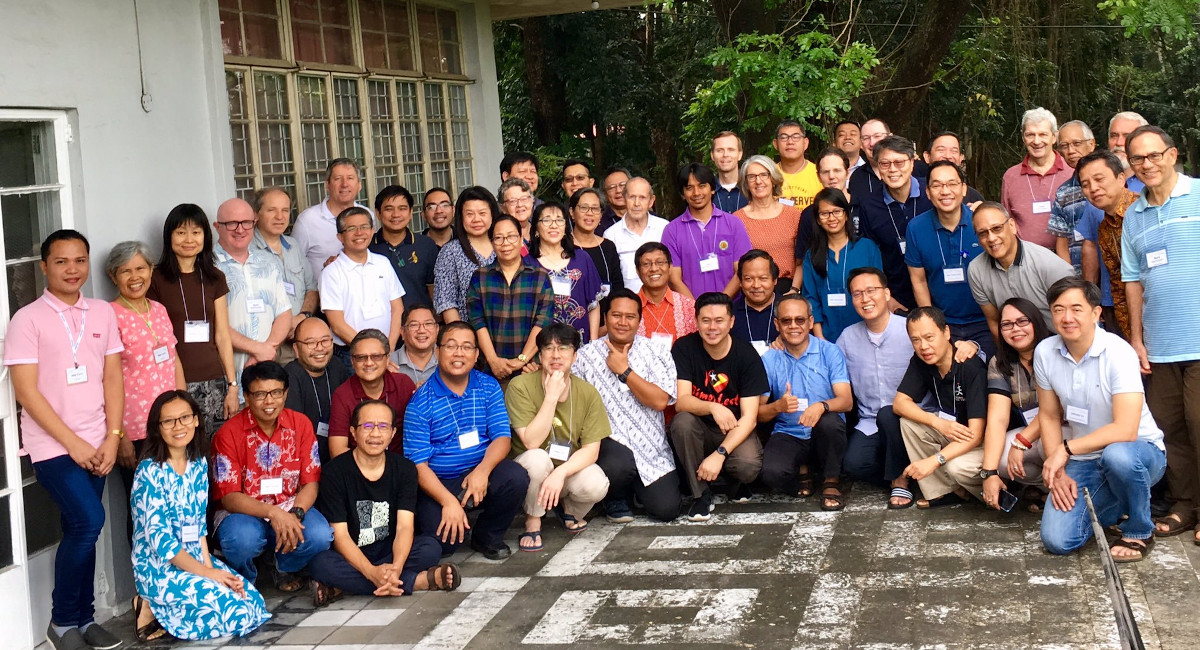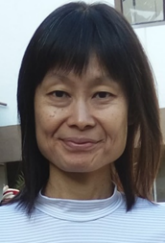 To listen, to learn, to be led, and to love by walking together – these words emerged with increasing resonance as we met over the course of three years in the conference to discern our apostolic plan. They signify for us the paradigm shift that we had undergone, no doubt inspired by the Holy Spirit. And no, you did not read it wrong – three years indeed! What started out as a presumably straight-forward task to renew the previous five-year plan turned out to be a prolonged journey that took us through many twists and turns.
To listen, to learn, to be led, and to love by walking together – these words emerged with increasing resonance as we met over the course of three years in the conference to discern our apostolic plan. They signify for us the paradigm shift that we had undergone, no doubt inspired by the Holy Spirit. And no, you did not read it wrong – three years indeed! What started out as a presumably straight-forward task to renew the previous five-year plan turned out to be a prolonged journey that took us through many twists and turns.
We first began our journey in a very different world, a pre-Covid world. At several meetings (yes, face-to-face!) from mid-2018 to early-2019, the JCAP Major Superiors and Extended Consult (comprising heads of various apostolates, networks, and institutions in the conference) examined our current realities vis-à-vis the previous conference plan. Using the method of Spiritual Conversation, we noted the consolations and desolations, and acknowledged that although we have progressed as a conference, there was much room for improvement in our internal and external collaboration. In particular, not many people had previously paid much attention to the detailed text of the conference plan, and there had not been much ground-up involvement in the planning. Inter-provincial and inter-sectoral dialogue in planning was also limited. In addition, we admitted our dire inadequacy in terms of personnel, resources, time, and talent.
As we endeavoured to address these gaps, little did we know that they would sow the seeds of synodality in time to come. The launch of the Universal Apostolic Preferences (UAPs) discernment process was a great grace in our planning. It helped us to see that we were part of a bigger picture, and that we journeyed not alone but with the Universal Society. Unprecedented consultations were carried out at the grassroots level in all provinces, regions, and sectors. Many of these included not only Jesuits but also mission partners. The Spiritual Conversation method was taught and used more widely. This further deepened our experience in communal discernment as desired at General Congregation 36, and some people even felt that this this was the first time that they really listened to one another and discerned together. The Major Superiors then met in late 2019 to reflect on our graced history as a conference and to fine-tune the UAP submission.
In the light of the freshly-promulgated UAPs, we experienced a ground-breaking meeting in Hong Kong in mid-2019. We reflected on identity and mission in the Society as well as on the signs of the times. But just when we thought that a list of conference priorities was within reach, the Holy Spirit had other plans! Our prayer, reflection, and conversation turned our attention instead to our own need for conversion, for getting out of the box and our comfort zone, and for taking more time to discern. Most of all, we felt a new desire to listen to others especially the people on the margins and the youth, to learn from them, to be led by them, and to love by walking together. We recognised this as a paradigm shift from doing ministry “to” and “for” them, to doing together “with” them, and more importantly, “being with” them.
God gave us the grace to be flexible, patient, open, and spiritually discerning in the planning process rather than rushing to complete it. In another unprecedented move, an enlarged consult met in Manila in late-2019 involving not only office bearers but also members of sectoral core teams. Moreover, the planning conversations were carried out in inter-sectoral clusters rather than along sectoral lines. As a result, several apostolic and organisational priorities were identified.
The Major Superiors then gathered for a first-ever joint retreat in Baguio, Philippines in early February 2020. The graces of this retreat bore fruit in an earnest and prayerful dialogue towards a draft plan. Amidst many areas of mission that seemed equally urgent and important, they were able to reach consensus on a realistic list of priorities.
However, history then disarmed us with a huge canon ball. The Covid-19 pandemic drastically changed the context of mission and we thought that we had to discern all over again. We held an online conference (another first!) to discern about the pandemic and listen to the voices of the youth and to the situation of the poor. The theme of vulnerability as a grace emerged strongly. We realised that instead of rendering our tentative conference priorities redundant, the pandemic actually reaffirmed them. Eventually we were able to finalise the JCAP five-year priorities with some specific goals by early 2021 with Father General’s approval.
These priorities comprise cura apostolica (care of the apostolic works), and cura personalis and governance (care of the personnel and governance), both of which are equally important. The first focuses on poverty, ecology, spirituality, the youth, the Church, and mainland China. The second focuses on strengthening governance in developing regions such as Myanmar, Laos, Timor-Leste, and Cambodia, restructuring some units for more effective mission, improving leadership and synodality throughout the conference, strengthening formation of Jesuits and mission partners, and developing the theological educational apostolate.
The statement of desire with which the planning document begins best conveys our overarching view of these priorities: “Seeing all things new in Christ, we want to walk in a journey of conversion and synodality as we commit ourselves to the urgent call of poverty and reconciliation with creation in Asia Pacific. We seek to collaborate especially with the youth, with the Church, with other faiths, and with those in civil society engaged in similar concerns. Ignatian Spirituality is the gift we share and the charism in which we desire to grow.”
The ensuing months saw several inter-sectoral online meetings to flesh out concrete action plans, and we even held our first examen of the fruits of implementation in late 2021. Admittedly, without being forced by the pandemic to become more familiar with online meetings, we might have been slower to move towards such an inter-sectoral way of collaborating!
Looking back, it could be said that identity, life, and mission are not just destinations but things that happen along the way. Indeed, whatever the twists and turns, it is how we travel the road that makes the difference. By God’s grace, the process of planning was itself the very moment when we began to fulfil our desire to listen, to learn, to be led, and to love by walking together. May Ignatius lead us forward in our pilgrim journey!
 Christina Kheng is a planning consultant with JCAP. She also teaches pastoral leadership and management at the East Asian Pastoral Institute. The JCAP 2021-2025 Plan can be downloaded here. Some helpful resources written by the author for pastoral planning through communal discernment can be found here.
Christina Kheng is a planning consultant with JCAP. She also teaches pastoral leadership and management at the East Asian Pastoral Institute. The JCAP 2021-2025 Plan can be downloaded here. Some helpful resources written by the author for pastoral planning through communal discernment can be found here.

